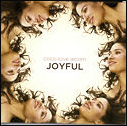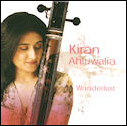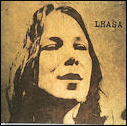 Joyful
Joyful
Coco Love Alcorn
SOP SOP2009001
(www.cocolovealcorn.com)
“Joyful”, the latest disc by singer-songwriter Coco Love Alcorn is a fun, eclectic party. The record opens with the preachy funkiness of Compassion, switches gears to the cute pop of I Got a Bicycle — complete with the instrument du jour of many young singer-songwriters these days, glockenspiel — then ventures into an ode to science nerds everywhere with Intellectual Boys. All of the songs are written by Alcorn who on her My Space page cites some of her influences as “dark organic fair trade chocolate, robots and shade provided by trees” but from the sounds of this record I’m guessing Feist, Corinne Bailey Rae and the Andrews Sisters had a hand, too. Alcorn guides her pretty voice easily from a girlie whisper on the quirky pop tunes to a big, soulful sound on the funkier numbers. Producer, programmer and keyboard player Chris Gestrin is a strong presence on the album providing Wurlitzer, Moog and various synthesized sounds as the mood requires. Alcorn plays acoustic guitar, bass, trumpet and “high fives.”
Cathy Riches
Concert Note: Alcorn is touring Canada and lands in Toronto on June 14 for the CD release party at Hugh’s Room.
 Wanderlust
Wanderlust
Kiran Ahluwalia
Four Quarters Entertainment
FQT-CD-1802 (www.kiranmusic.com)
Vocalist Kiran Ahluwalia is no newcomer to the world music scene. Born in India and raised in Toronto (now living in New York), she has made an international career for herself singing and developing the art form of ghazal (love songs generally depicting unfulfilled desires) and Punjabi folk songs. I first became aware of her while listening to Toronto violinist Parmela Attariwala’s first CD – “Beauty Enthralled” has one track featuring Ahluwalia, and I was totally hooked! “Wanderlust” is Ahluwalia’s fourth CD, featuring her own musical settings of poems from various sources. (Her second CD, “Beyond Boundaries” won the Juno award for best world music album of the year in 2004). You don’t need to understand Punjabi to appreciate this album – in fact, I dare you not to love this CD! The music itself is gorgeous, and somewhat beyond categorization – while certain traditional elements are present, for example the highly melismatic vocal style, use of tabla, sarangi and harmonium accompaniment, this is “modernish” music, but not to be pigeonholed as any one style or “fusion”. The use of other instruments not normally associated with Indian music, such as the Portuguese guitarra, adds a particularly nice touch on some of the tracks. The main attraction though is Ahluwalia’s voice itself – and here, words are not enough – velvety smooth, flowing like honey, impeccable intonation – but don’t take my word for it; buy the CD (or all of them) and hear for yourself!
Karen Ag
 Lhasa
Lhasa
Les Disques Audiogram ADCD 10222 (www.lhasadesela.com)
Lhasa de Sela fans have had a bit of a wait since 2003’s “The Living Road” and though “Lhasa” is a departure from her last, highly-praised disc, there is plenty here to enjoy. Lhasa’s gorgeous, plaintive voice and distinctive songwriting are the bedrocks and as usual she’s surrounded herself with skilled, sensitive musicians who bring a lot to the overall atmosphere. Recorded live off the floor, “Lhasa” is a much more stripped down recording – if you can call a record with harp, violin and several types of guitars, stripped down. Compared to “Living Road’s” multi-layered arrangements and inventive production, “Lhasa” is positively sparse. But it’s apt given the inspiration for the songs, the majority of which are fuelled by heartbreak and emotionally raw. The inventive musicians make the most of the spare arrangements, coaxing expressive sounds out of their instruments to bring appropriate mood to the material, such as Andrew Barr’s mallet drumming on The Lonely Spider or Joe Grass’s resonator guitar work on What Kind of Heart. The other major difference is that all the lyrics are in English, which is a bit of a shame since Lhasa writes beautifully in Spanish and French, growing up as she did in Mexico before settling in Montreal. But the songs don’t lose anything with the absence of a romance language. Lhasa still taps into her deeply poetic side, as in Where Do You Go with “Where do you go / when your tides are low / in the summer dress / of your drunkenness.”
Cathy Riches



